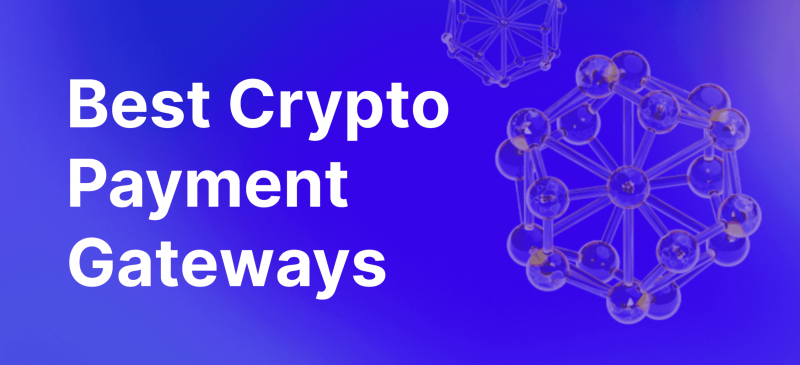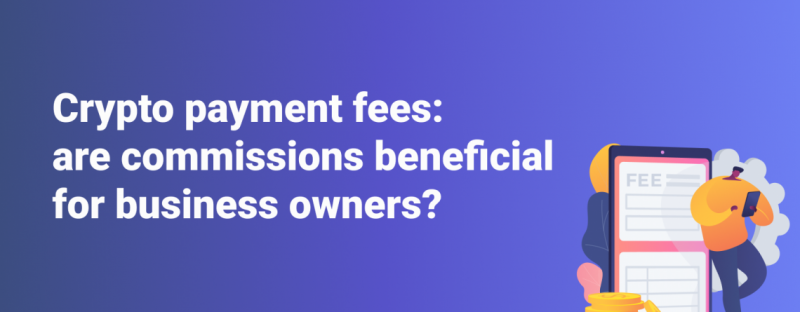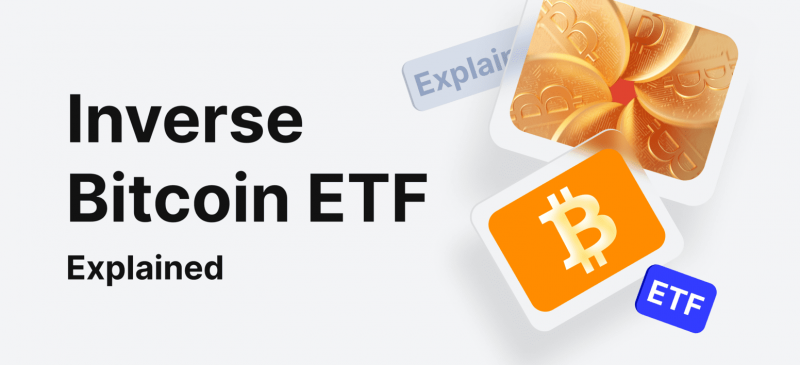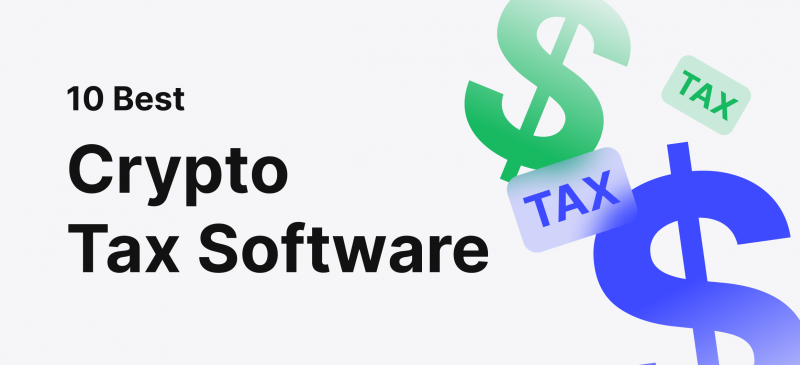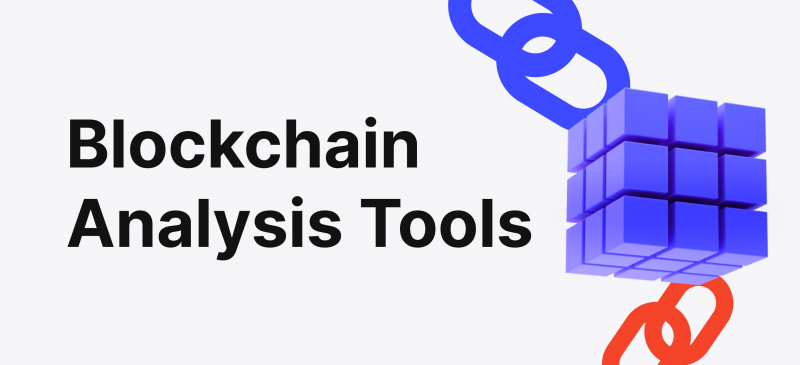400 million people worldwide own and use cryptocurrencies, according to Statistica. This means that the world population is getting more and more familiar with crypto and often chooses it over traditional fiat currencies when it comes to digital payments. Observing these, businesses are also evolving and providing crypto payment options to their clients. This naturally increases the demand for crypto payment gateways.
This article explains how crypto payment gateways work, provides tips on choosing the optimal one and offers a list of the best crypto payment gateways for your business.
Key Takeaways
- Crypto payment gateways are crucial in the current crypto and blockchain landscape.
- Crypto payment gateways can convert digital currencies into fiat money on behalf of merchants.
- There exist fiat-to-crypto and crypto-to-crypto gateways.
What is a Crypto Payment Gateway?
Crypto payment gateways are third-party processors that facilitate the adoption of digital currencies like Bitcoin or Ethereum by merchants, playing a crucial role in the current crypto and blockchain landscape. These gateways allow borderless crypto transactions, allowing merchants to accept crypto from multiple countries without worrying about international bank transfers and currency conversion charges.
A crypto payment gateway is a service that enables merchants to accept cryptocurrency payments, similar to online payments. The crypto payment gateway is an intermediary between customers and merchants, allowing payments to be accepted on various platforms, websites, mobile applications, and even physical stores. There is no need for conversion, as the money is deposited in the merchant’s bank account. The main goal of such gateways is to safely transfer cryptocurrency assets from the crypto wallet without much hassle.
Crypto payment gateways are built on blockchain technology, providing stability and transparency in transaction records. This decentralised nature eliminates mediation of banks and other financial institutions, speeding up transactions and reducing processing time.
Cryptocurrency payment gateway APIs facilitate transactions using cryptocurrencies as a payment method. These gateways allow digital currencies to be converted into fiat money, deposited into a bank account, and vice versa. Additionally, crypto-to-crypto payment gateways allow transactions between cryptocurrencies without converting digital money into fiat currency.
According to some surveys, 32% of small business owners and top executives currently accept crypto as payment.
How Does Crypto Payment Gateway Work?
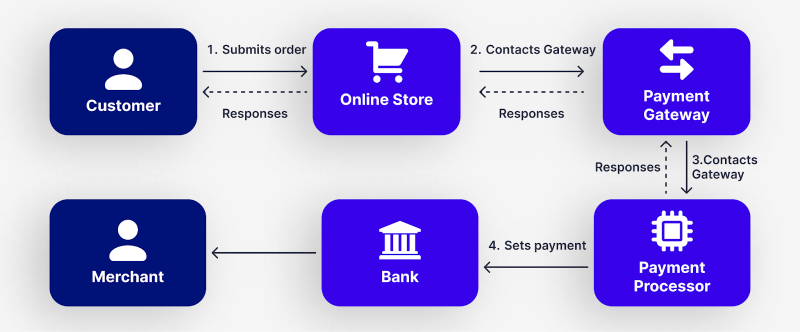
A crypto payment gateway is a traditional payment processor that receives payments in digital currencies and converts them into fiat money on behalf of merchants. It works by converting digital currency into fiat money based on the cryptocurrency’s market value and transferring the exact amount to the merchant’s account. This system allows merchants to offer crypto payment options to customers without dealing with actual digital currencies, ensuring that merchants can offer secure and convenient payment options.
The cryptocurrency payment service instantly converts the payment into the chosen currency, which is then added to the provider’s account and deposited into the designated bank account at agreed intervals. This process is transparent, allowing customers to focus on their chosen currency.
Here’s the basic algorithm of how a payment gateway works:
- Customers choose cryptocurrency payment options at checkout on the merchant’s website or in a physical store when making a cryptocurrency purchase or payment.
- The payment gateway generates a payment request, including the payment amount and a unique cryptocurrency address for the customer’s transaction.
- The customer initiates payment by sending a specified amount of cryptocurrency to the provided address using their cryptocurrency wallet.
- The crypto payment gateway continuously monitors the blockchain network associated with the chosen cryptocurrency to verify the transaction’s validity.
- Once the necessary confirmations are obtained, the payment gateway notifies the merchant of the successful payment.
- The merchant can proceed with order fulfilment or service delivery once payment has been confirmed and settled.
When using a cryptocurrency payment gateway, users must be aware of fees and regulatory requirements in their region since the rules for crypto payments may differ in various jurisdictions.
What Are The Types of Payment Gateways?
There are several types of payment gateways. Thus, there can be fiat-to-crypto and crypto-to-crypto gateways and on-chain and off-chain payment gateways. Let’s discuss each of these types in more detail.
Fiat-Crypto
A fiat gateway, also known as a crypto on-ramp, is a product or service that enables users to purchase cryptocurrencies with traditional fiat currencies like the US dollar or euro. This process, known as off-ramp, requires a crypto-to-fiat gateway. On-ramp services are widely available online and offer payment options like bank transfers, credit and debit card payments, and PayPal.
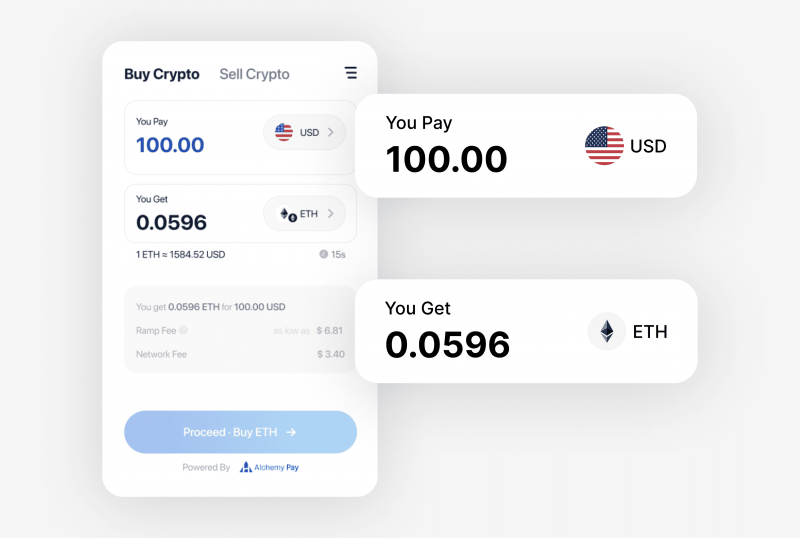
A fiat-to-crypto payment gateway enables merchants to accept payments in traditional fiat currencies like USD or EUR, convert fiat revenue into cryptocurrency, and withdraw it to an external wallet.
Broadly, any fiat deposits into the crypto market are considered fiat gateways. Bank transfers are the most common method for depositing money to a cryptocurrency application, with SEPA transfers being the most affordable in the Eurozone. However, SWIFT transfers are more common outside the Eurozone, though they are relatively expensive and slow. In Asia, numerous alternative ways exist to make fast transfers in local currencies.
Card payments are another option for recharging fiat balances in crypto apps. Providers like VISA, Mastercard, PayPal, or Skrill offer card payments, which can be made online but incur a commission. When choosing between bank transfers and card payments, it is essential to consider the commission, which typically ranges from 3-4% in cryptocurrency.
Crypto-Crypto
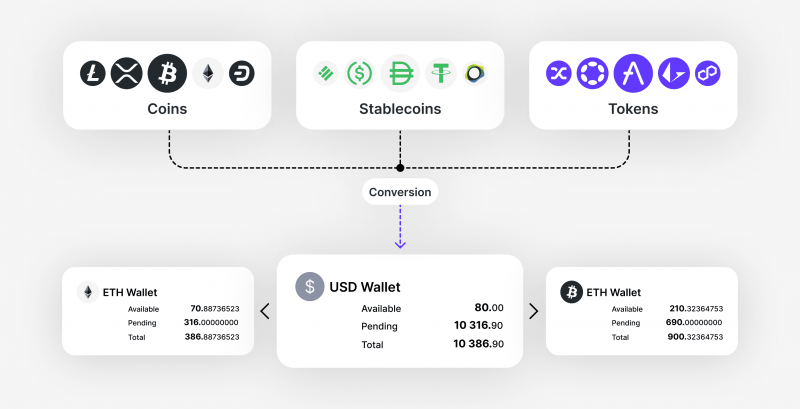
Crypto-to-crypto payment gateways enable transactions between cryptocurrencies without converting digital money into fiat currency. Purchasers make crypto payments, and merchants also receive payments in digital currency, with no banking infrastructure mediating in the payment processor.
Crypto payment gateways are similar to traditional payment methods but accept cryptocurrencies instead of cash or cards. They are anonymous and do not collect user information except wallet addresses.
The settlement process in crypto payment gateways involves four fundamental steps:
- An invoice is generated and presented to the customer, who can pay using their wallet’s scanner.
- The exchange rate is locked for the duration of the transaction.
- The payment gateway converts cryptocurrency into cash.
- The cash is deposited in the vendor’s account.
On-Chain And Off-Chain
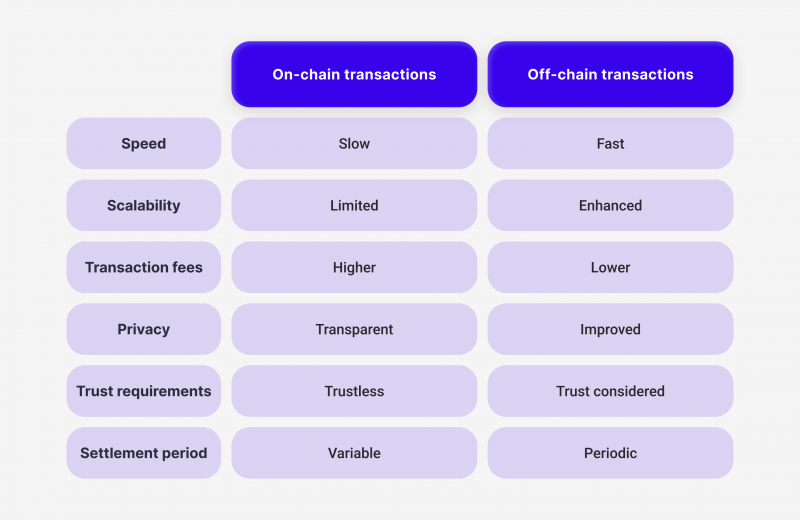
Crypto payments are processed on-chain and off-chain. On-chain gateways transfer crypto coins within the blockchain without cash, while off-chain gateways transfer cryptocurrencies between wallets. Both methods offer advantages in terms of transaction speed and fees.
On-chain gateways process transactions on the blockchain, providing transparency and inalterability. They transfer cryptocurrencies from one address to another within the blockchain with no cash involved. However, they take longer to settle and have high transaction fees.
Off-chain transactions are processed outside the blockchain, increasing speed and lowering charges. This ensures transparency and immutability while maintaining security as transaction details are stored in the blockchain mainnet. Off-chain gateways are wallet-centric and transfer cryptocurrencies from one wallet to another.
How To Choose The Best Crypto Payment Gateway
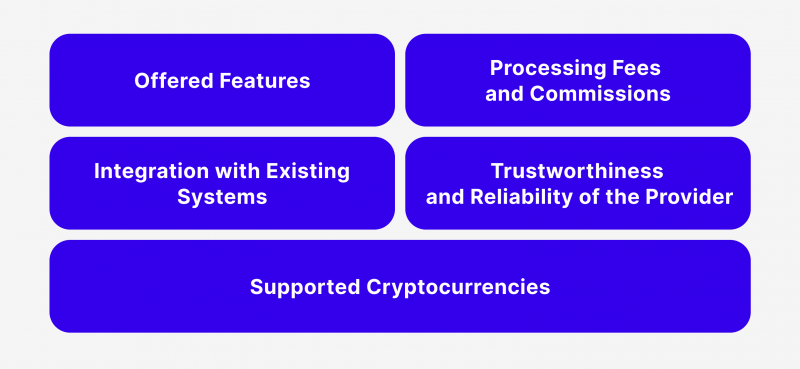
Selecting a crypto payment gateway solution can be challenging because many aspects should be considered to choose the gateway that perfectly suits your needs. Here are some general factors to study when picking a trustworthy crypto payment gateway.
Offered Features
Crypto payment gateways provide unique features like instant transaction settlements, enhanced security, and lower network fees. Some top gateways offer access to digital wallets and decentralised finance platforms, improving fund management efficiency. These benefits make crypto payment gateways popular among e-commerce businesses for efficient online payments. Payment providers should enable real-time fiat conversion, as it is common in the industry, eliminating the need for users to use other background crypto applications. The provider should offer various options for users, including e-commerce plugins, invoices, multiple account management, and more.
Processing Fees and Commissions
Crypto payment gateways offer secure and instant transactions at a reduced cost compared to traditional payment processors. Crypto payments typically have lower fees per transaction and sometimes offer zero or very low network fees.
Integration with Existing Systems
When choosing a crypto payment gateway, consider its integration with existing systems like e-commerce platforms or POS systems. Many payment gateways offer free plugins for easy integration with popular shopping carts like WooCommerce, Magento, and Shopify. Test and verify the chosen gateway before integration to prevent technical issues. Proper integration allows merchants to enjoy faster transactions, lower fees, and fraud prevention without drastically changing their checkout process.
Trustworthiness and Reliability of the Provider
When choosing a crypto payment gateway, it’s crucial to consider the provider’s reputation and trustworthiness. Check reviews, ratings, and testimonials for reliability.
Supported Cryptocurrencies
A gateway that supports multiple digital currencies provides greater versatility, allowing users to explore newer cryptocurrencies beyond Bitcoin and Ethereum.
5 Best Crypto Payment Gateways
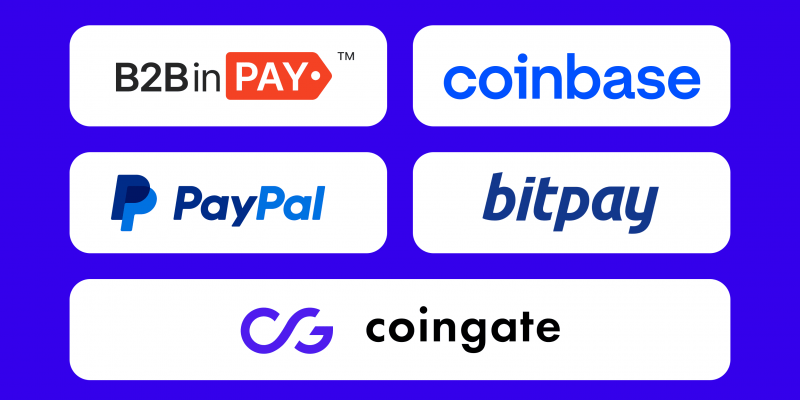
With the ever-growing popularity of cryptocurrencies and an increasing number of crypto payment gateways, finding the optimal one can be tricky, even for experienced traders. Here is a list of the best cryptocurrency payment gateways for businesses to accept and attract a new crypto-friendly customer base.
1. B2BinPay
B2BInPay is a popular crypto payment processing tool for retail and enterprise users. It offers a variety of features, among which are such as integration with WooCommerce, Magento, and Prestashop, low processing fees, downloadable reports, real-time balance, transaction history, real-time exchange rates, secure checkout, and a sandbox for testing accounts.
B2BinPay is a globally recognised payment solution that offers merchants and enterprises a secure, all-in-one payment solution. It supports sending, receiving, and storing funds, as well as conducting crypto payments online. With over 800 coins and tokens, B2BinPay provides 24/7 technical support in six languages and supports merchants and enterprises globally.
B2BinPay offers global transactions at a lower cost than traditional online payment gateways, with high automation and transaction speeds of under 20 seconds, allowing users to connect in less than an hour via a single API.
2. Coinbase Commerce
Coinbase Commerce is another popular crypto payment platform enabling businesses to accept cryptos securely and easily. It offers a user-friendly interface, customisable payment options, and real-time transaction monitoring.
With extensive cryptocurrency support, Coinbase Commerce is a popular solution for businesses worldwide. It supports a wide range of cryptocurrencies and offers advanced features for professional traders. However, it doesn’t support mobile point-of-sale functions and charges high fees compared to other payment gateways.
3. PayPal
PayPal, an online payment platform, now offers a cryptocurrency wallet for users to buy, store, and spend cryptocurrencies. PayPal added a crypto payment feature in 2020, allowing users to buy and store cryptocurrencies without extra fees directly. This 24/7 secure transaction service is available for both fiat and cryptocurrencies. Among PayPal’s payment gateway features is seamless integration with its digital wallet, enabling users to manage, store, and transact crypto coins directly within the PayPal ecosystem, split payment options for crypto and traditional fiat currencies and a one-click checkout feature allowing for payments with a single click.
PayPal is a reputable platform renowned for its security and reliability, allowing crypto-to-crypto and crypto-to-fiat conversions. However, it charges high monthly fees, and the platform’s transactions are exposed to market volatility.
4. BitPay
BitPay is a digital payment platform specialising in processing Bitcoin and Bitcoin Cash transactions. It offers seamless integration with an e-commerce crypto payment gateway, advanced fraud protection, and global settlement options.
BitPay payment gateway provides a user-friendly dashboard, detailed transaction reporting, and multi-currency support, making it an excellent choice for businesses accepting crypto payments.
It offers both crypto trading and payment services, with customisable features for users. BitPay protects users from cryptocurrencies’ volatility by locking in exchange rates during transactions, ensuring the receiver receives the exact deposit value. It offers direct bank transfers, cryptographically secured API features, mobile point-of-sale, email, and server payment options.
However, BitPay has transaction volume limits and relatively poor customer service quality.
5. Coingate
Coingate is a renowned crypto payment gateway, first working with lightning networks. It offers a user-friendly layout for merchants to set and monitor smartphone payments. Coingate shapes swift integration that supports various cryptocurrencies and facilitates easy acceptance of crypto payments and transactions for merchants and businesses. Being the best fiat-to-crypto payment gateway, it also allows individuals to trade and exchange cryptocurrencies for fiat.
It allows users to receive Bitcoin payments, Ethereum, and other digital currency transactions with a single button on their website. Coingate stores most of its cryptocurrency reserves in a cold wallet, ensuring the safety of both B2B and B2C users’ digital assets. If the Bitcoin gateway gets hacked, funds are locked and inaccessible in the hacker’s wallet.
Final Takeaways
Crypto payment providers play a vital role in today’s ever-evolving crypto world. They facilitate payments, making them easier for merchants and buyers and help businesses develop. Choosing the best crypto payment gateway might take time and effort. However, there are certain factors, like the provider’s reliability and offered features, that you should take into account when selecting preferred payment gateways.
FAQ
Are cryptocurrency payment gateways secure?
Various payment gateways might have different security protocols; however, most offer advanced encryption, two-factor authentication, and insurance coverage for digital assets to ensure the highest security standards.
Does a legal authority regulate crypto payment gateways?
Yes. Cryptocurrency transaction regulations vary by jurisdiction, necessitating compliance with financial and tax laws, as well as conducting KYC and AML checks.
